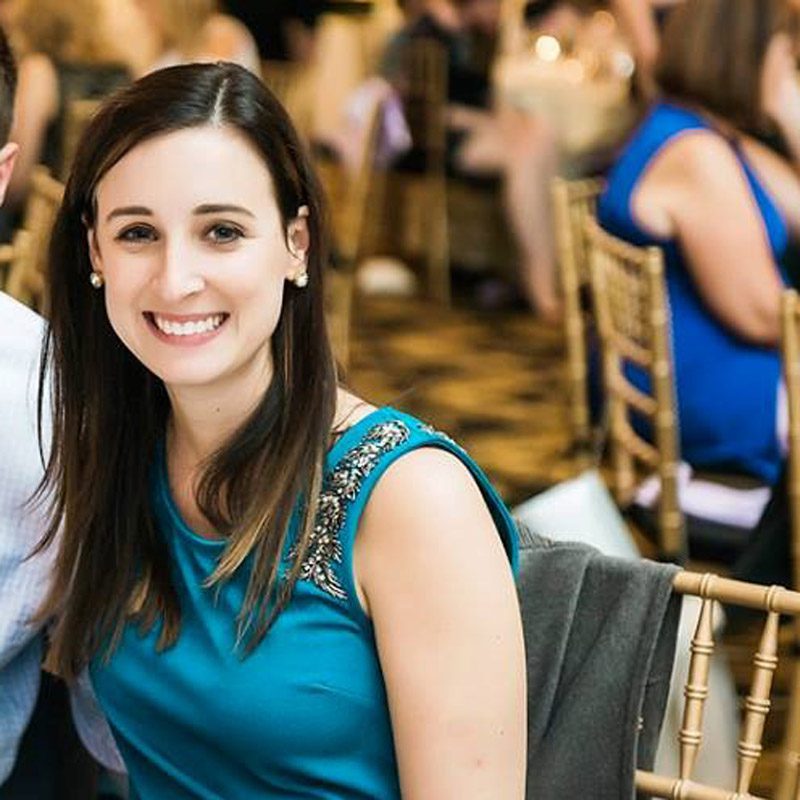
Nora Collins '11
Vice President; Asset Liability Manager, Bank of America
How did you find your way to where you are today? Share a little about your professional journey.
My professional journey first started as an intern in Corporate Treasury at Bank of America in Charlotte. As I enjoyed my experience over that summer, I accepted a full time position in the Corporate Treasury rotational program at the bank. Specifically I worked in Fixed Income and Rating Agency Investor Relations for two years, supporting the relationship management of key debt investors and the rating agencies. I then moved to Enterprise Stress Testing to the scenario generation arm of the group, utilizing more of my economics major background. I recently have transitioned back to Balance Sheet Management to the Interest Rate Analytics team which calculates, analyzes, and reports on the sensitivity of net interest income, capital and economic value of equity to interest rate changes.
Was there a catalyzing experience be that critical meeting, research or discovery, being recruited, failing, starting over, or major event, that shaped your career? What advice would you offer someone in the same situation?
While at Furman, I participated in summer economic research projects and study abroad opportunities that were catalysts in exposing me to the banking industry and financial markets. Another important catalyst was a resume grab posted by a Furman graduate for a summer internship at Bank of America. I decided to apply, although I wasn’t sure my background would be a perfect fit. I ended up being offered the internship. This opened the door to the bank for me, and it has really shaped my career experiences.
When providing advice for professional development, what are some tools or resources one should consider?
In relation to professional development, I think networking is an important factor. Keeping up connections with prior colleagues and teams, as well as developing new connections will help you expand your knowledge base and open doors in the future. Doing this routinely and not during times of need will make sure you can utilize those connections.
How would you recommend someone interested in the same career/vocation pursue a similar path?
Start early in trying to find the path you would like to pursue. In terms of completing internships, look for those that will help inform the type of role you would be interested in in the future. I personally didn’t realize how early most corporate banking and finance jobs hire. Many firms hire people as early as the Fall.
How have mentors impacted your professional development? How did you develop those relationship?
Mentors have certainly helped my professional development over the last few years, both informally and formally. They can be an external source to confide in, or can serve as an avenue for future opportunities. Mentors can come through formal mentoring channels, but informal development can occur through common business contacts or similar work experiences.
What do you wish you would have known getting started in your field?
I underestimated how much excel/programming would be used on a day to day basis. Especially when you are working with big data, this is a critical tool.
How could Furman help with getting someone started?
Connections with alumni are a big factor for supporting internships or job opportunities. I think also more technical classes would be beneficial for students who are looking to enhance their resumes.
How has your liberal arts background shaped your career path or supported your success?
The liberal arts background provides students with a well-rounded education that helps them succeed in different settings. In general, I think liberal arts education makes you more aware and prepared for changing environments.
What extracurricular activities helped you develop professionally?
In particular my study abroad trip to Brussels, Belgium helped me develop professionally while at Furman. While taking classes, we also interned at European Parliament, which exposed us to the working world, international business, and economics.
Were there particular courses within the economics department that were especially useful in helping you identify your career or that ended up helping you to be successful in your career?
My macroeconomics class really started me on the path of choosing economics as my major. In addition, the chance to work on research opportunities with the department helped solidify my interests. Faculty that is passionate about their work is a huge draw.
Were there particular projects or activities from any of your economics courses that were especially useful?
The Fed challenge project with the economics department was really useful in learning more about the Federal Reserve and monetary policy. It was also a distinctive experience to get to travel to the Federal Reserve and present our proposed policy objects.
Were there particular "engaged learning" experiences (e.g. internships, study away, research opportunities) that were especially useful?
Studying abroad was probably the most useful engaged learning experience for me. The chance to work in European Parliament, take classes, and have group trips across the EU was really unique.
Any other "highlights" from your experience in economics?
The opportunity to go to Japan through the APEC experience was incredible. Getting to attend the conference and participate with students from other countries was an unusual experience.
0